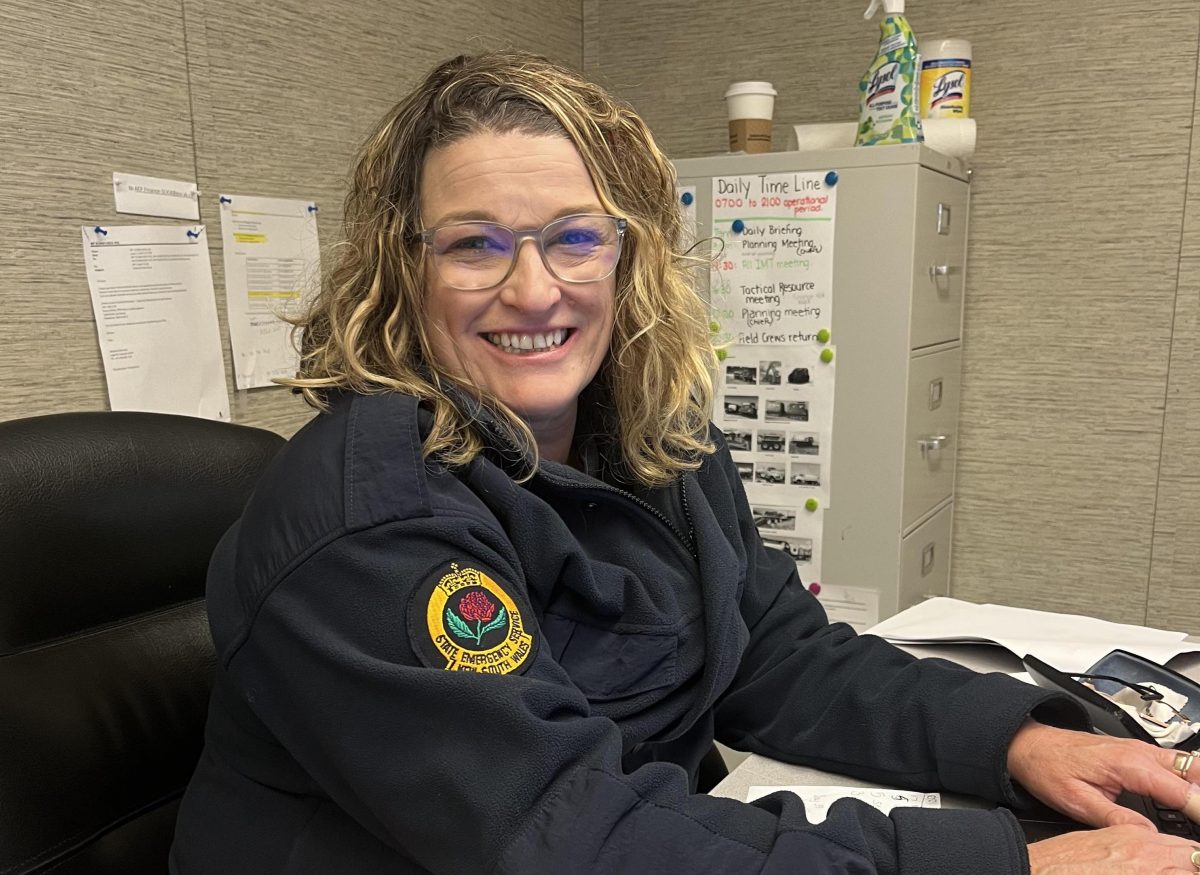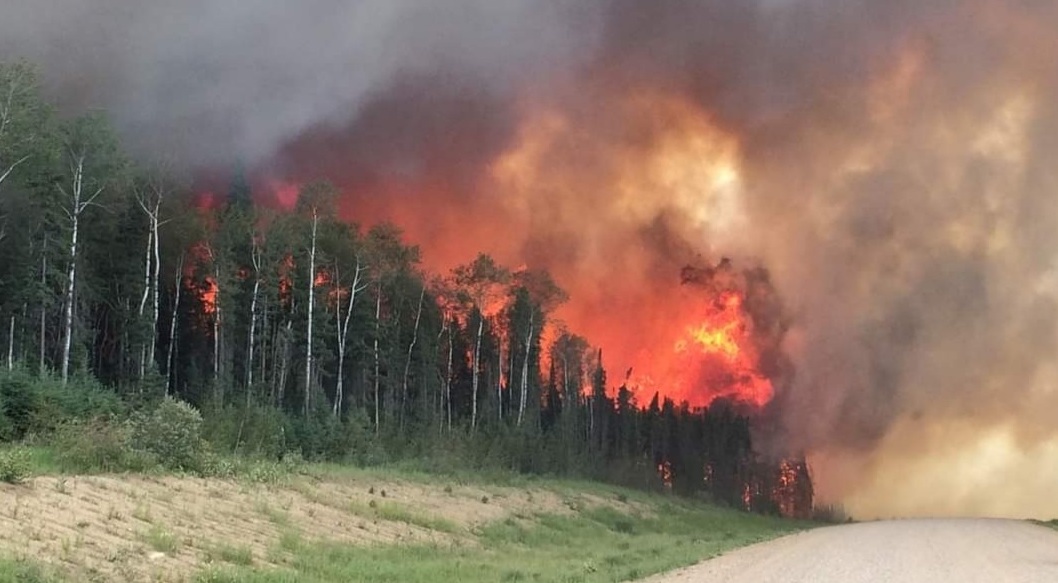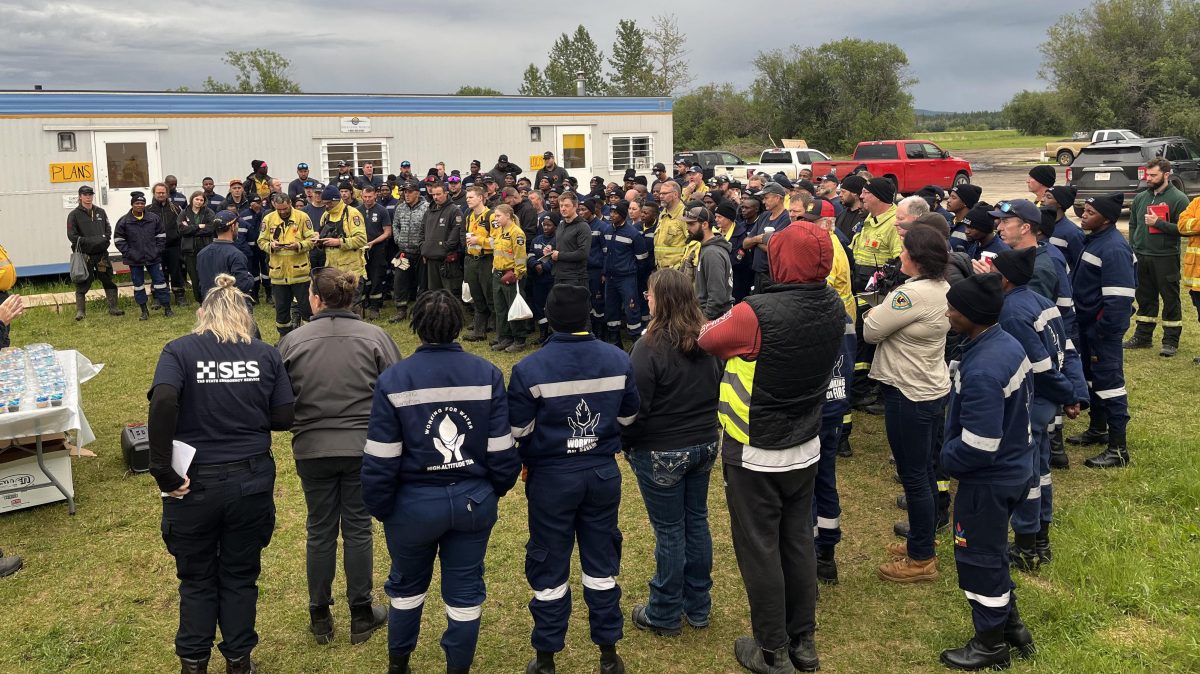
Colleen Taylor from the Wagga SES working at the Grizzly Complex in the Slave Lake region of Alberta, Canada. Photo: Supplied.
Wagga Wagga SES member Colleen Taylor is in Canada on a 36-day deployment. She is part of a strong Australian contingent that is assisting Canadian authorities in coordinating the fight against wildfires across several provinces and territories.
Colleen has devoted 15 years of her life to the SES and was involved with the recent flood events in NSW. She worked at fires in Glen Innes, Casino and Tumut as part of her role.
The journey to Canada has been a rewarding experience for the Wagga resident. She has learned different ways to approach jobs and has made new friends, but she told Region that she would never have imagined such a trip when she first took on the job.
“I didn’t envisage this three years ago, or even one year ago,” Colleen said with a laugh.
“This is a once-in-a-lifetime opportunity to witness how things are done over here.”
Having arrived in Canada on 27 May, Colleen spent two days being briefed in the city of Edmonton before she was given her assignment.
She is involved with logistics and finance in the Slave Lake region of Alberta, about 250 km north-west of Edmonton. So far, upwards of 4.8 million hectares of land has been burnt across Canada, with thousands of homes evacuated.

Wildfires such as the one in the province of Alberta are raging across Canada. Photo: Supplied.
Fighting fires on this scale involves a range of complex jobs to assist in coordinating the frontline firefighters and, as Colleen described, her position is “not your run-of-the-mill admin role”.
”We often have to get our hands dirty to assist volunteers,” she said.
As was the case when Canadians came to Australia to fight the devastating NSW fires of 2019-20, a certain camaraderie comes from facing adversity together.
Colleen had previously visited Canada on a holiday, but the opportunity to work alongside Canadians and interact with locals has given her a new perspective on the North American country.
“The people have been extremely welcoming, polite and appreciative of what we have been doing,” Colleen said.
“Just the other day, we went to have lunch and a person bought us a box of donuts, just to say thanks.”
The help from Australian SES members and firefighters, along with others from the US, New Zealand, South Africa and countries throughout Europe, has come at a time when the majority of Canada’s provinces are experiencing some of the worst wildfires on record.
As a result, the local provincial authorities, and their workers, have been under extreme pressure since the wildfires began in Alberta at the beginning of May.
Colleen described how she, and the other Australians and Internationals deployed across Canada, gained a sense of satisfaction from knowing that they were giving the locals some respite.
“It is nice to know that we can give them some time with their families, even if it is just a couple of days,” she said.

SES workers from NSW are among those being briefed about the Alberta wildfires. Photo: Supplied.
Agencies such as the SES, NSW Rural Fire Service and others are held in such high regard within the Riverina because of the selflessness and sense of community displayed by the people employed by the organisation and those who volunteer.
Raised at The Rock, 32 km south-west of Wagga, from a family who readily gave their time to charity, Colleen spoke about what it meant to be involved with the NSW SES.
“That’s why you work there; you are there to protect the community, whether that be in the Riverina or even in Canada,” she said.
“My parents were always volunteers. My Dad, who passed away in 2014, was a life member of The Rock’s Rural Fire Service, and Mum was always involved with the show society, Red Cross and CWA.”
Fellow SES member Aileen Honeyman, from Hay, has also been deployed to Canada in a supply coordination role, while Tumbarumba’s Kim Ferguson was scheduled to leave on 20 June to take up the role of situation officer.
Before leaving Australia, Colleen was quoted on the SES website as saying that she would return the favour to the Canadians one day, after she had worked alongside them in Tumut during the bushfires of 2019-20.
She, and all the others involved in the 2023 wildfires, have certainly done that.







